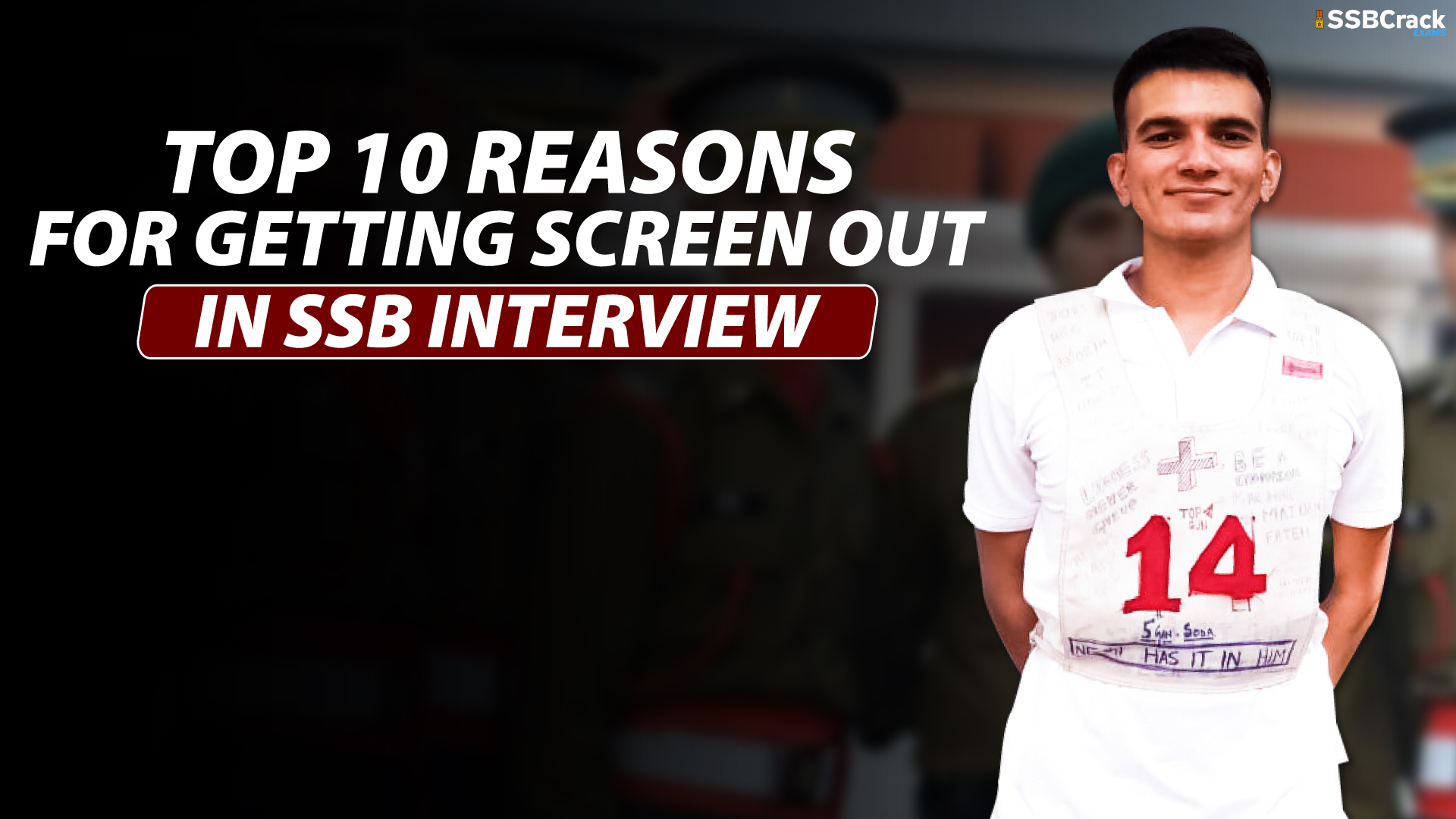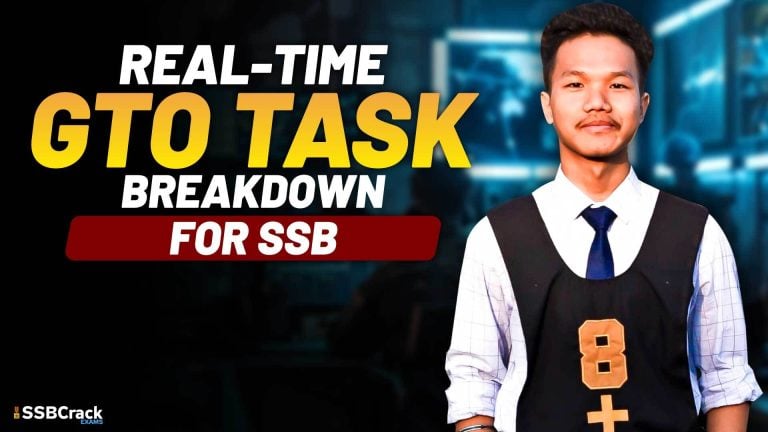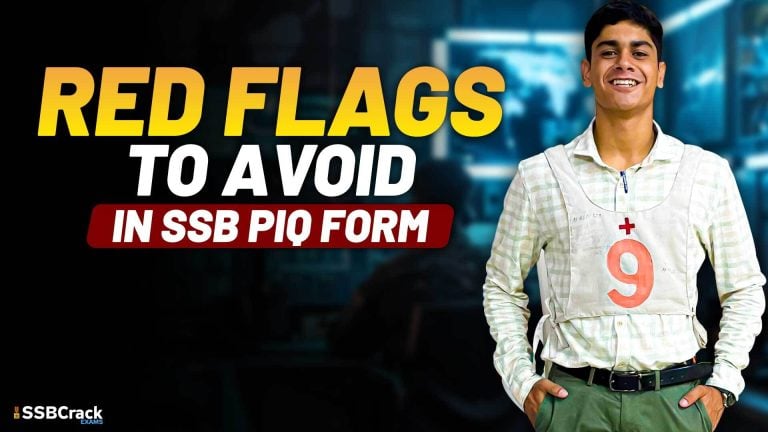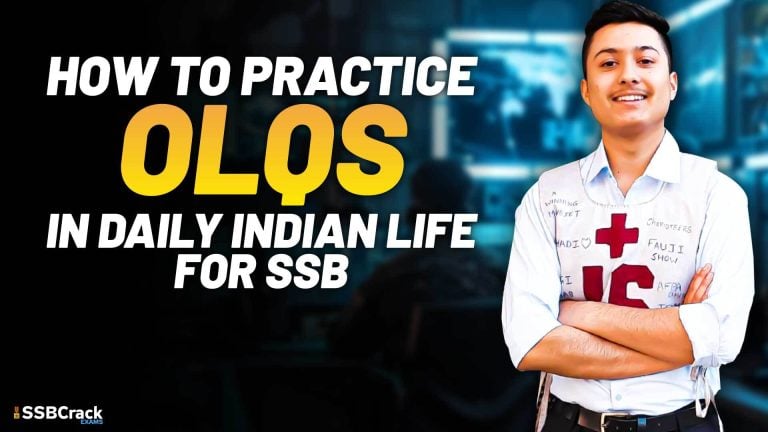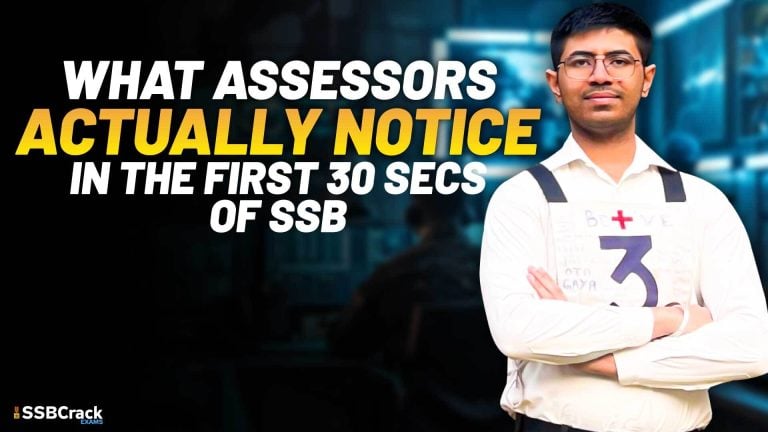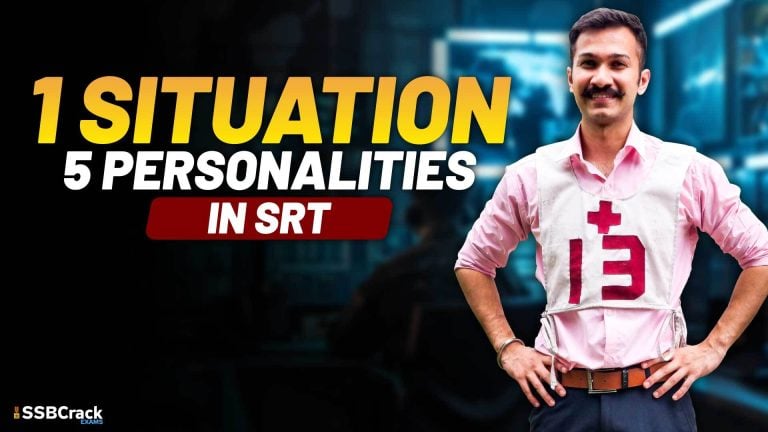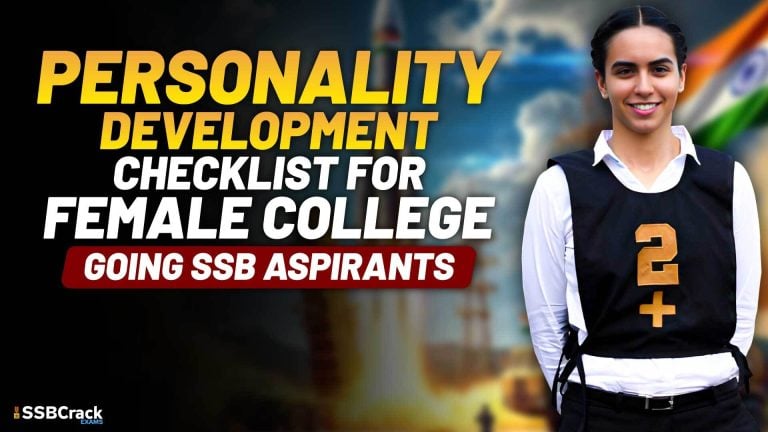The Services Selection Board (SSB) interview is a pivotal step for candidates aspiring to join the Indian Armed Forces. This rigorous selection process is designed to evaluate a candidate’s potential, aptitude, and personality traits necessary for a successful military career.
However, many candidates face disappointment when they get screened out during the initial stages. Understanding the common pitfalls can significantly enhance your chances of success. Here, we delve into the top ten reasons candidates often get screened out during the SSB interview.
1. Inattention During Briefings
Importance of Listening
One of the most critical aspects of the SSB interview is the initial briefing conducted by the assessors. Candidates must pay close attention during this phase, as it sets the tone for the entire process. Failing to do so can lead to misunderstandings about the tests and procedures, which may result in unnecessary mistakes.
Consequences of Distraction
When candidates ask irrelevant questions or demonstrate ignorance about the process, it reflects poorly on their preparedness and attentiveness. This can lead assessors to question their ability to follow instructions, which is a vital skill in military operations.
Tips for Better Focus
- Take Notes: Jot down important points during the briefing.
- Limit Distractions: Stay mentally present and avoid daydreaming.
- Ask Relevant Questions: If clarification is needed, ask questions that pertain directly to the briefing.
2. Insufficient Preparation for Intelligence Tests
The Role of Intelligence Tests
The Officer Intelligence Rating (OIR) test evaluates logical reasoning, verbal and non-verbal intelligence. Many candidates assume that their academic success will suffice, but these tests require specific preparation.
Common Mistakes
Candidates often underestimate the time constraints and the format of these tests. A lack of familiarity can lead to poor performance, ultimately affecting the overall screening outcome.
Preparation Strategies
- Practice Regularly: Use sample OIR tests to familiarize yourself with the format.
- Time Management: Work on solving questions under timed conditions to improve speed.
- Seek Guidance: Consider coaching or study groups focused on SSB preparation.
3. Weak Storytelling in PPDT
Understanding the Picture Perception and Discussion Test (PPDT)
The PPDT is designed to assess a candidate’s ability to interpret visual stimuli and articulate a coherent story. Candidates are shown an ambiguous picture and must create a narrative based on their perception.
The Pitfalls of Weak Narratives
A poorly constructed story can hinder a candidate’s chances. Assessors look for creativity, relevance, and the ability to think critically. Stories that are overly dramatic or unrelated to the picture can raise red flags.
How to Craft a Strong Story
- Focus on Clarity: Ensure your story has a clear beginning, middle, and end.
- Stay Relevant: Base your narrative on elements visible in the picture.
- Practice Narration: Regularly practice storytelling to improve fluency and confidence.
4. Ineffective Group Discussion Skills
Importance of Group Dynamics
Group discussions are crucial in evaluating how candidates interact with peers. The ability to communicate effectively and collaborate is essential in a military setting.
Common Group Discussion Errors
Dominating conversations or failing to contribute meaningfully can lead to negative impressions. Candidates must balance assertiveness with openness to others’ ideas.
Enhancing Group Discussion Skills
- Listen Actively: Pay attention to others’ contributions and build on them.
- Encourage Participation: Help quieter members share their thoughts to foster a collaborative environment.
- Maintain Composure: Stay calm and composed, even during heated discussions.
5. Lack of Confidence
The Impact of Confidence
Confidence plays a crucial role in the SSB interview. Candidates who appear nervous or unsure can be perceived as lacking the necessary qualities for military leadership.
Identifying Confidence Issues
Signs of low confidence include fidgeting, avoiding eye contact, and speaking in a shaky voice. Such behaviors can undermine a candidate’s credibility.
Building Confidence
- Practice Public Speaking: Engage in activities that require speaking in front of others.
- Mock Interviews: Conduct practice interviews with friends or mentors to simulate the real experience.
- Positive Visualization: Visualize successful outcomes to help boost self-assurance.
6. Poor Communication Skills
The Importance of Clear Communication
Effective communication is vital in military operations. Candidates must express their thoughts clearly and concisely during the interview process.
Challenges Faced by Candidates
Many candidates struggle with articulating their ideas, leading to misunderstandings and miscommunication. This can significantly impact their overall evaluation.
Improving Communication Skills
- Engage in Discussions: Participate in group discussions to practice articulating your thoughts.
- Read Aloud: Reading books or articles aloud can help improve fluency and clarity.
- Seek Feedback: Request constructive feedback from peers or mentors to identify areas for improvement.
7. Negative Body Language
The Role of Non-Verbal Cues
Body language can convey confidence, interest, and sincerity. Negative body language, such as slouching or avoiding eye contact, can create a poor impression on assessors.
Identifying Negative Body Language
Candidates may not realize how their body language affects their communication. Inconsistent gestures or lack of eye contact can signal disinterest or insecurity.
Tips for Positive Body Language
- Maintain Eye Contact: Engage with assessors and peers through consistent eye contact.
- Stand Tall: Adopt an open posture to convey confidence.
- Use Gestures: Complement your speech with appropriate hand gestures to emphasize points.
8. Inability to Demonstrate Officer-Like Qualities (OLQs)
Understanding OLQs
The SSB assesses several Officer-Like Qualities, including leadership, teamwork, and decision-making. Candidates must demonstrate these traits throughout the interview.
Common Shortcomings
Candidates often fail to exhibit these qualities, leading assessors to doubt their suitability for military service. Inconsistent behavior or a lack of initiative can be detrimental.
Strategies for Showcasing OLQs
- Take Initiative: Volunteer for leadership roles in group activities.
- Collaborate Effectively: Show your ability to work well with others and respect differing opinions.
- Be Decisive: Practice making quick, informed decisions during discussions and activities.
9. Inconsistent Responses
The Importance of Consistency
Assessors look for reliability and integrity in candidates. Inconsistent answers or contradictory behavior can raise concerns about a candidate’s honesty.
Recognizing Inconsistencies
Candidates may inadvertently provide conflicting information during different stages of the interview, leading assessors to question their credibility.
Maintaining Consistency
- Reflect on Your Experiences: Be clear about your motivations and experiences to ensure consistent responses.
- Practice Common Questions: Prepare for frequently asked questions to reduce the chances of inconsistencies.
- Stay True to Yourself: Authenticity is key; avoid fabricating stories or exaggerating experiences.
10. Lack of Preparation
The Importance of Being Prepared
Many candidates underestimate the significance of thorough preparation for the SSB interview. Familiarity with the process can greatly enhance performance.
Common Areas of Unpreparedness
Candidates may neglect to research the SSB process, practice for tests, or prepare for potential questions, leading to poor performance.
Effective Preparation Strategies
- Research the SSB Process: Familiarize yourself with the structure and expectations of the interview.
- Practice Regularly: Engage in mock tests and group discussions to build confidence.
- Review Feedback: Seek feedback from previous candidates or mentors to identify areas for improvement.
Conclusion
Getting screened out during the SSB interview can be a disheartening experience for aspiring candidates. However, understanding and addressing the common pitfalls can significantly enhance your chances of success. By focusing on preparation, communication, and the demonstration of essential qualities, you can improve your performance and increase your likelihood of passing through the screening stage. Remember, the journey may be challenging, but with dedication and effort, you can achieve your goal of serving in the Indian Armed Forces.
You can also read a few posts on SSB interview:
- 12 Ways To Improve Your PPDT And TAT Story Writing
- 10 Tips For Better PPDT Story Narration
- 5 Things To Avoid In TAT (Thematic Apperception Test)
- 8 Tips To Complete 60 SRTs In 30 Minutes
- An Overview Of SSB Interview Complete Procedure
FAQs
What is the SSB interview process like?
The SSB interview consists of various stages, including intelligence tests, personality assessments, group discussions, and personal interviews. Each stage is designed to evaluate different aspects of a candidate’s suitability for military service.
How can I prepare for the OIR test?
To prepare for the OIR test, practice sample questions, familiarize yourself with the test format, and work on your time management skills to improve speed and accuracy.
What should I do if I get nervous during the interview?
If you feel nervous, practice relaxation techniques such as deep breathing or visualization exercises. Engaging in mock interviews can also help build confidence and reduce anxiety.
How important is body language in the SSB interview?
Body language plays a crucial role in the SSB interview, as it can convey confidence, interest, and sincerity. Positive body language can enhance your overall impression on assessors.
What are Officer-Like Qualities (OLQs)?
Officer-Like Qualities are traits that the SSB looks for in candidates, including leadership, teamwork, initiative, and decision-making ability. Demonstrating these qualities is essential for a successful interview.
